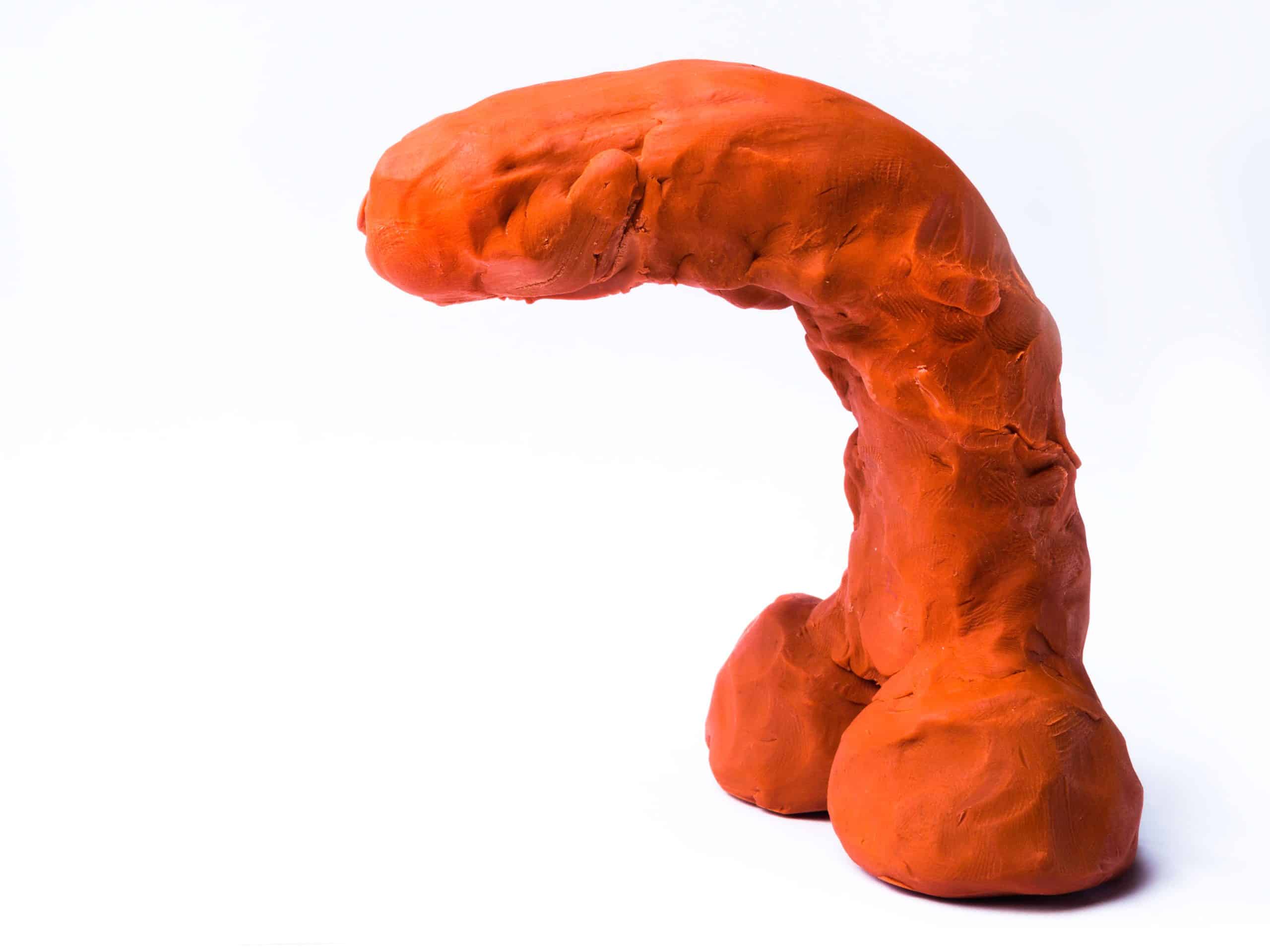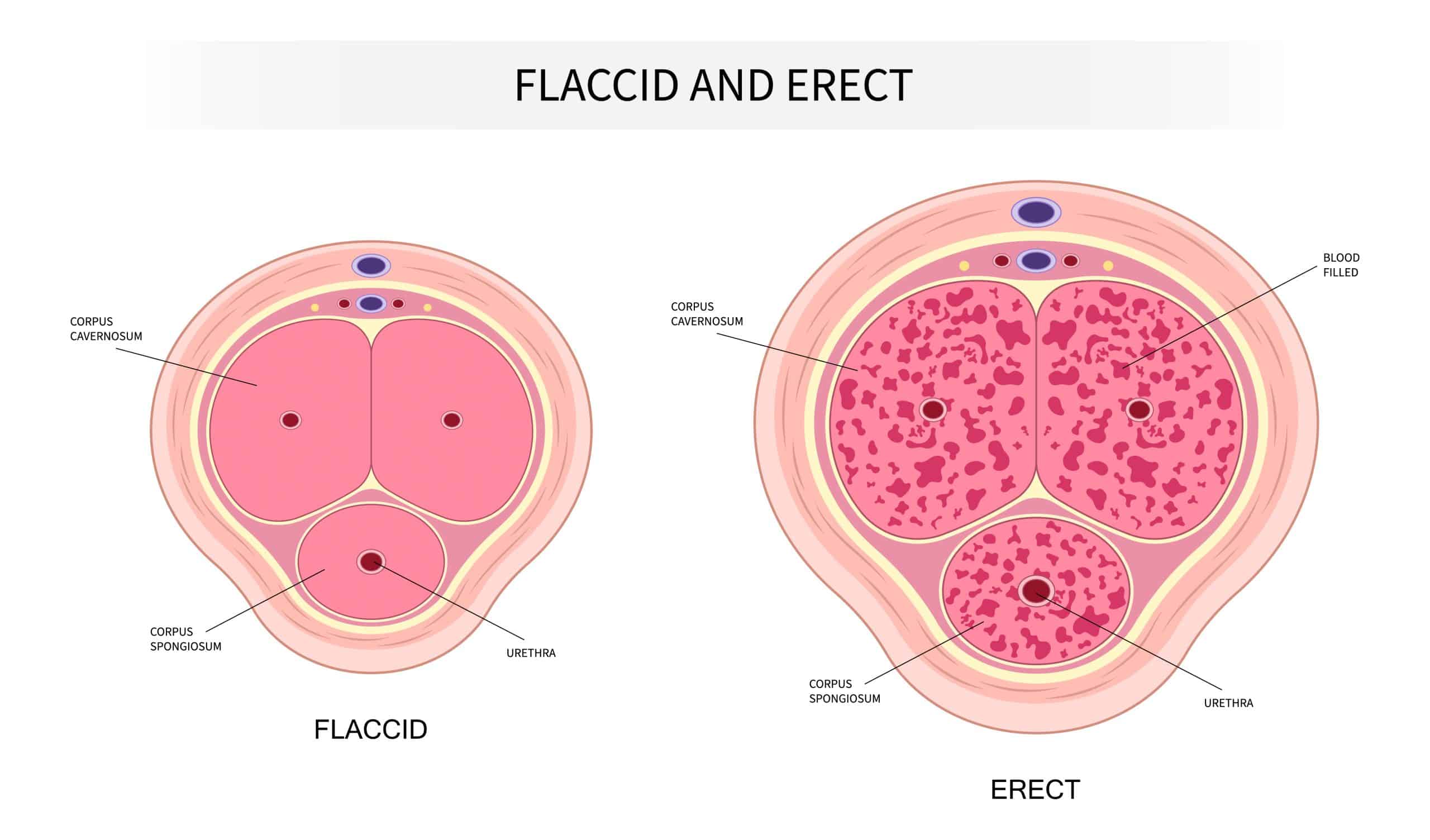Erectile Dysfunction in Florida
Let’s face it, ED is hard to hide!
Rediscovering Strength
The Personal Struggle with Erectile Dysfunction
For many men, the ability to achieve and maintain an erection is intertwined not just with physical intimacy, but also with self-esteem, identity, and emotional wellbeing. When that ability falters or becomes inconsistent, the impact reaches beyond the bedroom.
Feelings of inadequacy, embarrassment, and anxiety often accompany erectile dysfunction (ED).
The condition can strain relationships, erode self-confidence, and create a sense of isolation, causing men to withdraw from partners or avoid intimacy altogether. For many, it’s more than just a physiological challenge—it’s an emotional and psychological one, too.
What is Erectile Dysfunction (ED)?
Erectile dysfunction (ED) is the recurrent or consistent inability to achieve and sustain an erection sufficient for satisfactory sexual performance.
While occasional difficulties are common and can stem from various temporary issues, consistent challenges might indicate a deeper, underlying condition.
ED is often a signal of physical, emotional, or psychological concerns and sometimes a combination of all three.
Symptoms of Erectile Dysfunction
Recognizing the symptoms is the first step towards understanding and addressing ED.
These symptoms include:
- Consistent Trouble Getting an Erection: Difficulty achieving an erection, regardless of the level of sexual arousal.
- Difficulty Maintaining an Erection: Being able to achieve an erection but struggling to maintain it for the duration of sexual activity.
- Reduced Desire for Sexual Activity: A noticeable drop in sexual interest, which can accompany the physical symptoms or be a standalone concern.
- Inconsistency in Performance: Experiencing a mix of successful sexual encounters interspersed with instances of ED.
- Anxiety around Intimacy: Developing feelings of dread, anxiety, or avoidance behavior around the possibility of sexual activity.
- Erection that is Too Soft for Intercourse: Achieving an erection but not firm enough for penetration.
Functional and Regenerative Medicine Perspective on Erectile Dysfunction Causes
From a functional and regenerative medicine perspective, erectile dysfunction (ED) is approached with an emphasis on root causes and holistic healing. Rather than focusing solely on the symptom (inability to maintain an erection), this approach delves deeper into interconnected systems, underlying conditions, and the body’s inherent healing mechanisms. Here’s a breakdown of ED causes from this standpoint.
Systemic Inflammation
Chronic inflammation can impact vascular health, which is crucial for erectile function. If the blood vessels become constricted or unhealthy, it can compromise blood flow to the penis.
The inflammation might arise from various sources, including diet, gut health, or chronic conditions.
Hormonal Imbalances
Testosterone levels play a significant role in male sexual health. Functional medicine will assess not just testosterone but also related hormones and their balance.
Thyroid hormones, adrenal hormones, and even insulin can impact ED, either directly or indirectly.
Gut Health and Nutritional Deficiencies
The gut is increasingly recognized as a significant contributor to overall health. Gut dysbiosis or imbalances might lead to systemic issues that indirectly contribute to ED.
Deficiencies in crucial nutrients, such as zinc, vitamin D, and Omega-3 fatty acids, can influence erectile function.
Environmental Toxins and Detoxification
Exposure to certain toxins, like heavy metals or endocrine-disrupting chemicals, can interfere with hormone production and balance.
An overburdened detoxification system might lead to systemic issues, including ED.
Vascular and Tissue Health
From a regenerative standpoint, the health of the penile tissue and the blood vessels supplying it is paramount.
Treatments like shockwave therapy or platelet-rich plasma (PRP) injections can stimulate the body’s inherent healing mechanisms, promoting tissue repair and improved vascular function.
Neurological Factors
Proper erectile function requires intact neural pathways. Neurological issues, whether from conditions like diabetes or injuries, can contribute to ED.
Regenerative approaches might explore nerve regeneration or healing to address ED from this angle.
Stress and Emotional Health
Chronic stress, anxiety, and depression can contribute to ED. Functional medicine often emphasizes the interplay between emotional and physical health.
Techniques like mindfulness, meditation, and counseling might be integrated into a holistic ED treatment approach.
Metabolic Factors
Conditions like insulin resistance or metabolic syndrome can directly or indirectly lead to ED. A functional approach would assess and address metabolic health as a potential root cause.
Cellular Aging and Mitochondrial Function
As cells age or if mitochondrial function (the cell’s energy-producing unit) declines, it can influence various bodily functions, including erectile function.
Regenerative medicine might focus on strategies to rejuvenate cells or improve mitochondrial function, with treatments like stem cell therapies or specific supplements.
Conclusion
A functional and regenerative perspective on erectile dysfunction seeks a comprehensive understanding of the condition, often unearthing root causes overlooked by conventional treatments. By emphasizing the body’s interconnected systems and inherent healing mechanisms, these approaches offer holistic and often sustainable solutions for men grappling with ED.
Functional and Regenerative Medicine
vs. Traditional Urology Care
Erectile dysfunction (ED) is a multifaceted condition that can stem from a variety of underlying causes. While traditional urology offers time-tested interventions, the functional and regenerative medicine approach seeks to understand and treat the root causes holistically. Here’s a comparative exploration of both:
Traditional Urology Care for Erectile Dysfunction
We assess the whole body, considering factors like diet, lifestyle, microvasculature, hormone balance, metabolic health, hydration and mental well-being that frequently contribute to prostatitis.
Diagnostic Approach
Traditional urology uses tools like penile Doppler ultrasound, nocturnal penile tumescence tests, and blood tests to diagnose ED.
Standard Interventions
Pharmaceutical options like PDE5 inhibitors (Viagra, Cialis), Penile injections, Vacuum erection devices and Penile implants for more severe cases.
Focus
Immediate alleviation of symptoms and enabling an erection.
Limitations
While effective, some treatments might not address the underlying cause, especially if the ED is influenced by systemic health issues or lifestyle factors. There’s also potential for side effects or dependence on medications.
Functional Medicine Approach
Holistic Diagnosis:
While acknowledging the physical aspects, this approach also considers systemic health, lifestyle, emotional well-being, hormonal balance, and more.
Integrated Treatment Plan:
Based on the individual’s unique profile, interventions might include:
-
- Dietary and Nutritional Coaching: Addressing deficiencies and inflammatory diets.
- Hormonal Balancing: Ensuring optimal levels of testosterone and related hormones.
- Stress Reduction Techniques: Meditation, biofeedback, counseling.
- Detoxification: Addressing potential toxins or heavy metals that can influence ED.
Regenerative Therapies:
Such as platelet-rich plasma (PRP) injections or stem cell therapy to promote vascular and tissue health.
Shockwave Therapy:
A non-invasive treatment that uses acoustic waves to improve blood flow to the penis, promoting tissue regeneration.
Focus:
Treat the root causes to not only alleviate ED but also improve overall health and vitality.
Advantages:
By addressing root causes, there’s potential for lasting improvement and even resolution of ED without lifelong dependence on medications.
Limitations:
Some interventions might require more time to show results, and certain treatments are not be covered by insurance. Additionally, the comprehensive nature of the approach demands a significant commitment from the patient to lifestyle changes.
Functional Medicine Tools:
-
- Comprehensive assessment to understand the patient’s entire health picture including specialty labs.
- Dietary and lifestyle changes tailored to the patient’s lab results.
- Use of natural supplements to target inflammation and promote healing.
- Stress management and physical therapies.
- Sleep optimization and restoration
- Personalized treatment plans that evolve with the patient’s progress.
- IV Nutrient/Ozone/UBI “TRIFECTA” Therapy
- EBOO, an oxygenation and ozonation process enhances the body’s immune response, reduces inflammation, and promote healing.
- Hormone replacement therapy (TRT)
- Nutritional therapy to optimize cellular health
- Detoxification to rid the body of potential carcinogens
- Stress management, as chronic stress can suppress the immune system
- Methylene Blue for urinary tract and prostatitis acts as a mild antiseptic, reducing bacterial activity and inflammation in the urinary tract. And its anti-inflammatory effects aid in alleviating symptoms of prostatitis
Regenerative Medicine Tools:
-
- Ozone injections to promote healing directly in the prostate tissue.
- PEMF (Pulsed Electromagnetic Field Therapy) to enhance healing and reduce inflammation.
- Neural therapy for chronic pelvic pain syndromes
- Custom antibiotic, antiviral, anti-fungal and anti-inflammatory prostate injection designed based on lab data collection.
- LI-ECSW (shockwave) to correct tight pelvic floor muscles and to stimulate tissue regeneration and blood flow
- Platelet Rich Plasma Prostate Injections
- Exosome and Stem Cell IV Infusions
- IV Chelation Therapy for removal of toxic burden
- Peptides specifically for healthy prostate tissue regeneration, decrease of inflammation, and hormone optimization.
Conclusion
Traditional urology provides rapid, effective interventions for ED but might not always delve into deeper systemic issues or root causes, especially when they venture outside the scope of urology. Functional and regenerative medicine, on the other hand, takes a more comprehensive approach, aiming for long-term solutions by addressing underlying issues.
For many patients, a combined approach might be optimal. Using traditional methods for immediate relief while integrating functional and regenerative strategies can offer both immediate results and sustainable health improvements.
Seeking relief from Erectile Dysfunction (ED)?
“Through our unique approach, we explore a wide range of factors to determine what is causing
your prostate to act up.”
Interested in Improving Your Prostate Health?
How To Get Started

Choose an Assessment Plan
Start the process by determining your current
wellness status.

Schedule a Consultation
Meet with an expert practitioner to review the results of you assessment and discuss your customized treatment plan.

Begin Your Wellness Journey
It's time to get back to balance and experience optimal wellness and quality of life




